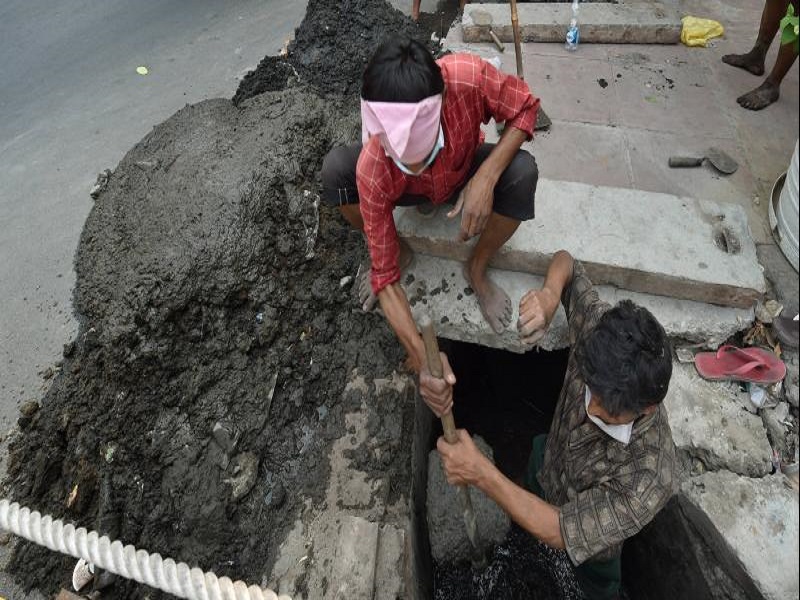The banned manual scavenging is continuing in the municipalities in the erstwhile Adilabad district despite the governmental claims to stop this practice.
Social stigma attached to sanitation works continues through generations and members of the same communities are engaged in this job as the work is considered menial.
Manual scavenging practice is banned under the Prohibition of Employment as Manual scavengers and their rehabilitation Act,2013 ( PEMSR). It bans the use of any individual for manually cleaning, carrying, disposing of or otherwise handling in any manner any human excreta for disposal.
The sanitation workers may not clean the wet toilets but they clean the drainages into which shit flows in various ways. "In practice, the sanitation workers of the municipality clean the drainages in which the human excreta flows from the toilets. In many cases, parents made their children sit for nature's call beside the drainage lines or sometimes on the drainages themselves in slums. Sanitation workers belong to the Dalit community. They clean drainages without safety gear. The wastage of the toilets and bathrooms flows into these drainages," activists point out.
Adilabad municipal officials are not providing safety gear to the sanitation workers cleaning the drainages. These workers suffer from itching and develop skin diseases.
As per rule, municipal officials should supply hand gloves and shoes to cover their bodies while cleaning the drainage lines. But this is not being done by the municipality.
Manual scavenging is going on in municipalities of Nirmal, Mancherial, Kagaznagar, Bhainsa etc in the erstwhile Adilabad district.
Sanitation workers are maximum from Dalit communities and fewer are from BCs. Hence, municipal officials do not bother about the problems faced by these workers cleaning drainages, cleaning roads and collecting dust and garbage.
A sanitation worker of Adilabad Municipality, on condition of anonymity, said they have been treated like slaves and forced to do sanitation works without providing any safety gear.
He said the municipal staff just provide them spade, iron basket, crowbar and other tools for cleaning the drainage lines.
The workers engaged in cleaning drainages and removing carcasses of animals are prone to life risks, compared to other sanitation workers. The risk will be furthermore when they clean the underground drainages and clear the stagnated water. Deaths take place in some cases due to emission of gases and suffocation while cleaning the drains.
Notably, there is no underground drainage system in many municipalities.
Women sanitation workers are more prone to health problems. Sanitation workers do not get sanitation material and soaps to clean their bodies after they clean the drainage lines.
Many sanitation workers suffer from chronic diseases of skin, sinusitis, allergies, and lungs and infections since they engage with dust and filth for long hours.
Source : Deccanchronicle
0 COMMENTS



